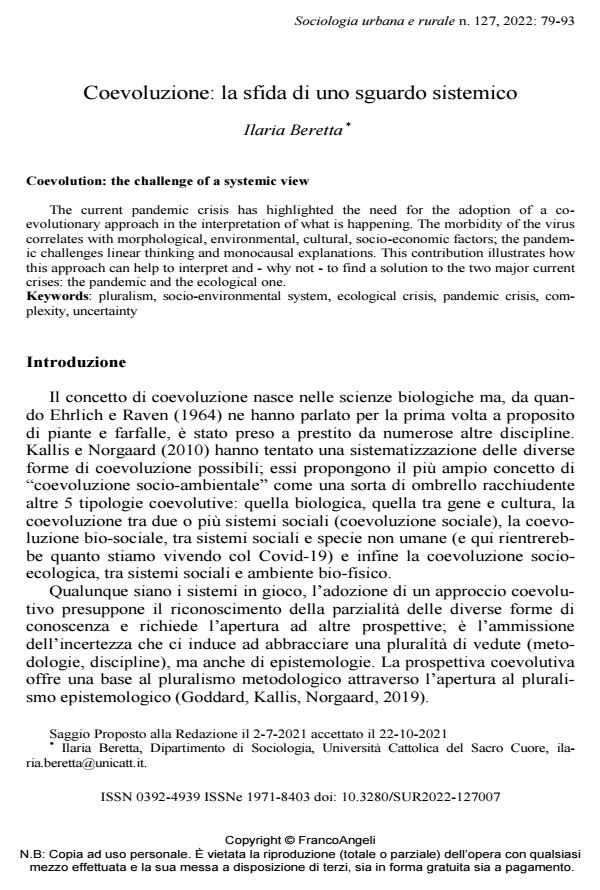Coevoluzione: la sfida di uno sguardo sistemico
Titolo Rivista SOCIOLOGIA URBANA E RURALE
Autori/Curatori Ilaria Beretta
Anno di pubblicazione 2022 Fascicolo 2022/127
Lingua Italiano Numero pagine 15 P. 79-93 Dimensione file 271 KB
DOI 10.3280/SUR2022-127007
Il DOI è il codice a barre della proprietà intellettuale: per saperne di più
clicca qui
Qui sotto puoi vedere in anteprima la prima pagina di questo articolo.
Se questo articolo ti interessa, lo puoi acquistare (e scaricare in formato pdf) seguendo le facili indicazioni per acquistare il download credit. Acquista Download Credits per scaricare questo Articolo in formato PDF

FrancoAngeli è membro della Publishers International Linking Association, Inc (PILA)associazione indipendente e non profit per facilitare (attraverso i servizi tecnologici implementati da CrossRef.org) l’accesso degli studiosi ai contenuti digitali nelle pubblicazioni professionali e scientifiche
L’attuale crisi da COVID 19 ha messo in evidenza la necessità dell’adozione di un approccio coevolutivo nell’interpretazione di quanto sta accadendo. La morbilità del virus si correla a fattori morfologici, ambientali, culturali, socio-economici; la pandemia sfida il pensiero lineare e le spiegazioni monocausali. Il presente contributo illustra come tale approccio possa aiutare a interpretare e - perché no - a trovare una soluzione alle due grandi crisi attuali: quella pandemica e quella ecologica.
Parole chiave:pluralismo, sistema socio-ambientale, crisi ecologica, crisi pandemica, complessità, incertezza
- Resilience and adaptive capacities of societies: social and cultural strategies Francesca Cubeddu, Elvira Martini, in Frontiers in Sociology 1581631/2025
DOI: 10.3389/fsoc.2025.1581631
Ilaria Beretta, Coevoluzione: la sfida di uno sguardo sistemico in "SOCIOLOGIA URBANA E RURALE" 127/2022, pp 79-93, DOI: 10.3280/SUR2022-127007